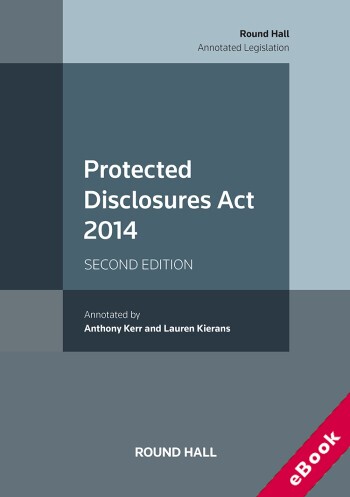
Whistleblowing is now considered to be among the most effective, if not the most effective, means to expose and remedy corruption, fraud and other types of wrongdoing in the public, private and non-profit sectors. Whistleblowers, or Bellringers as they are known in the Netherlands, often face, however, severe personal and professional repercussions including, for employees, dismissal.
The Protected Disclosures Act 2014 introduced a single overarching framework for the protection of whistleblowers. In the decade since its enactment, there have been significant decisions of the Labour Court and the Superior Courts, such as the Supreme Court decision in Baranya v Rosderra Irish Meats Group.
More importantly, the European Commission, in April 2018, published a proposal for a Directive on the protection of persons who report breaches of Union law, which was then adopted as Parliament and Council Directive (EU) 2019/1937. The Directive was transposed by the Protected Disclosures (Amendment) Act 2022 by expanding both the material and personal scope of the 2014 Act and by requiring all public bodies, as well as private sector employers with more than 50 employees, to establish formal channels and procedures for the making and receiving of protected disclosures. The Office of the Protected Disclosures Commissioner is also established.
This edition includes the full text of the amended 2014 Act, with each section fully annotated by reference to relevant case law, books, journal articles and parliamentary debates. It is intended to provide a comprehensive and up to date overview of a complex and important area of law which, as the Commissioner indicated in his 2023 Annual Report, is "not straightforward and thus is open to being misunderstood".